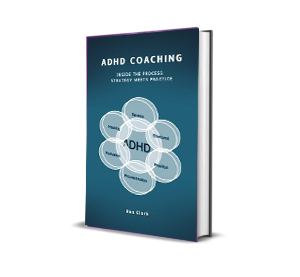Neurodiverse Supervision
I offer clinical supervision for neurodivergent practitioners and those working with neurodivergent clients. This is a specialised space where lived experience, deep understanding, and practical strategies come together to support growth, development, and ethical practice.
Supervision for Neurodivergent Practitioners
Being a neurodivergent practitioner brings both strengths and challenges. My supervision goes beyond the standard framework to meet your specific needs, helping you better understand your neurodiversity, manage it both in and out of session, and sustain a practice that works for you.
Together, we work on:
- Developing insight into your neurodivergence and how it shows up in your work
- Learning to manage energy, attention, and executive function in a therapeutic setting
- Building and maintaining a sustainable practice structure
- Academic and professional demands such as writing, exams, or professional development
Supervision for Work with Neurodivergent Clients
I specialise in working with neurodivergent clients and support practitioners in doing the same. Whether you’re new to this field or looking to deepen your understanding, I offer guidance and structure to help you work ethically, compassionately, and effectively with neurodivergent clients.
Areas we may explore include:
- Developing treatment plans that incorporate neurodivergence
- Recognising and making sense of neurodivergent traits and behaviours
- Understanding sensory processing differences and overload
- Supporting client insight and identity development
- Practical strategies for managing ADHD, autism and other neurodivergent profiles in therapeutic work
My Supervision Philosophy
Supervision, for me, is first and foremost a relationship. It’s a space where you’re encouraged to bring your questions, doubts, insights and your whole self, without fear of judgement. I believe that real professional growth happens when you feel safe, heard and supported.
That sense of safety is the foundation. Without it, honest reflection is nearly impossible. I aim to create a relationship where you feel able to speak freely even about your deepest uncertainties because it’s in that openness that growth begins (Mearns, 1990).
My approach balances support and challenge, in line with Kadushin’s model of supervision (1976), which outlines three key functions:
- Supportive – to offer emotional holding and validation
- Educative – to share theory, structure and clinical guidance
- Managerial – to ensure ethical, safe and competent practice
I imagine these as two sides of a scale: one side holding space for you, and the other offering a stretch. Depending on where you are in your journey, we’ll adjust that balance together.
At times, you may need more space to process and reflect to think out loud, explore what’s happening, and find your own answers. Other times, I might offer more direct input, whether that’s theory, ethics, or practical tools. I’m here to support you in both growing your confidence and deepening your competence.
As Chinnock (2011) describes, supervision can sometimes include exploring your own personal processes and how they show up in the work. That might involve looking at countertransference, professional challenges, or moments of emotional impact and reflecting on what they mean for your practice.
I see learning as relational. When we have that solid, trusting base in supervision, we can move more confidently into the developmental edge the place where new understanding and insight happens.
Support with a Developmental Edge
My supervision is thoughtful, responsive and shaped around your needs. Sometimes, you may simply need space to reflect and think out loud. Other times, we may explore theory, transference, countertransference or ethical dilemmas. I aim to meet you where you are — encouraging confidence and clarity while supporting you to grow your own voice and authority as a practitioner.
As Chinnock (2011) describes, I often find myself supporting practitioners not only in their work with clients, but also in navigating the emotional, intellectual and interpersonal demands of being a therapist.
I work with supervisees at all stages of their professional development, and I tailor my approach to meet you where you are.
If you’re in the early stage of your journey, we’ll focus on building your confidence, developing key skills, and making sense of theory in a way that feels practical and grounded. I’ll offer clear guidance and encouragement to help you feel more at home in your role.
If you’re at an intermediate stage, we’ll start to dig deeper into treatment planning, reflective practice, and your emotional responses in the work, including things like countertransference. Together, we’ll explore how your inner world shapes the way you relate to clients.
If you’re more advanced, you may be drawing from a range of theories and working more independently. My role here is to be a sounding board, someone to help you think things through, sharpen your clinical judgement, and continue growing your own unique voice as a practitioner.
Wherever you are in your development, supervision is a space to be supported, challenged, and heard. I’m not here to hand you answers I’m here to help you discover your own.
Reflective Practice and the Meta View
A key focus in my work is developing reflective practice both on action and in action (Schön, 1983). This means not only reviewing sessions after they happen, but learning to think on your feet, respond in the moment, and hold a helicopter view of the work.
I encourage supervisees to develop a meta-perspective to observe the client, themselves, the relationship, and the wider context all at once. This layered awareness brings depth, ethical sensitivity and creativity into your clinical practice (Hawkins & Shohet, 1992).
Ethical Practice
Ethics are woven into everything I do. I work from Thomson’s ethical principles, including:
Beneficence: Acting in the best interests of both supervisee and client
Autonomy: Supporting the supervisee’s self-direction and agency
Fidelity: Keeping promises and maintaining appropriate boundaries
Justice: Offering fair, accessible and inclusive support
Non-maleficence: Working to prevent harm
Trustworthiness: Building reliable, respectful relationships
Self-respect: Fostering self-awareness, care and integrity in the practitioner
Ethical practice isn’t just about rules it’s about creating a foundation of trust, safety and professional responsibility.


